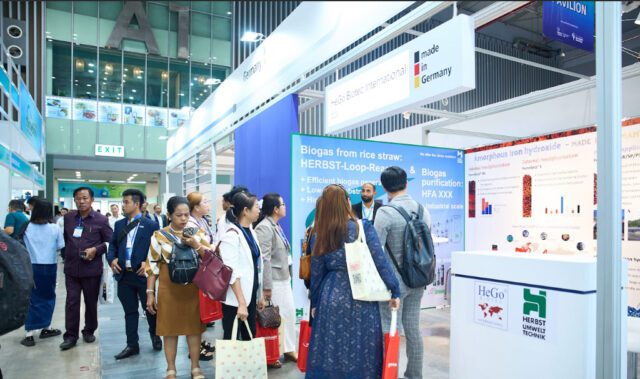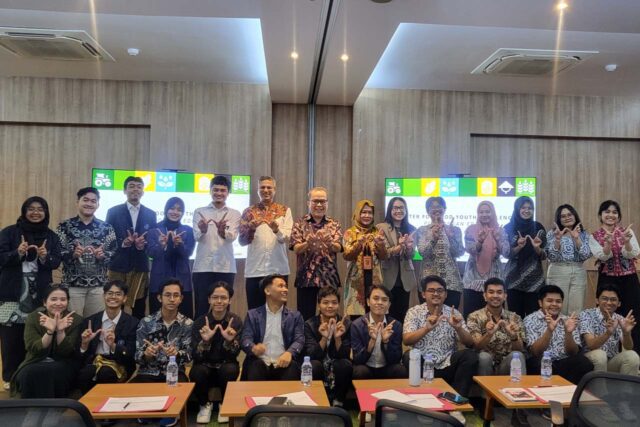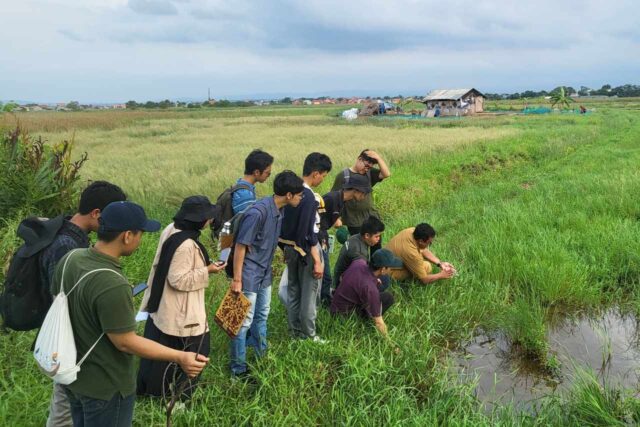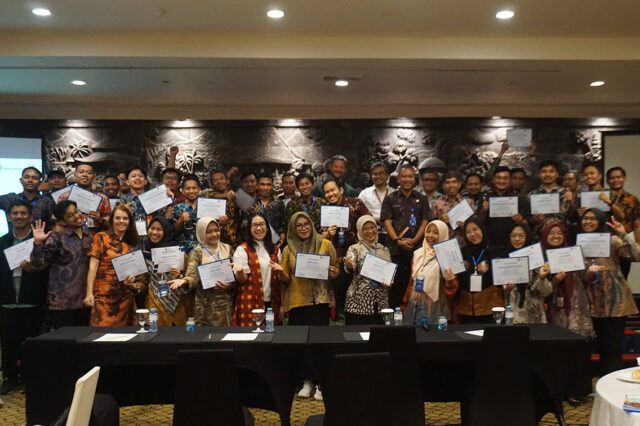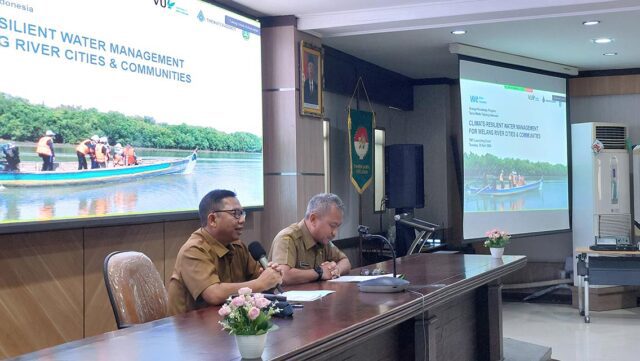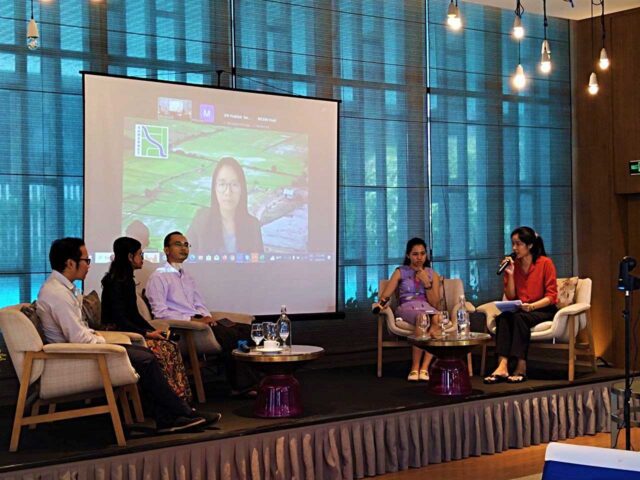Since October 2018 a coalition of Dutch water organisations is working together in the ‘Urban Water Logistics for a Greater Yangon’ (UWLY) program to support the Yangon Regional Government in Urban Water and Water Logistics Challenges. The UWLY program, to run for three years as part of the Dutch Government “Partners in Business’ (PIB) program, has the first deliverable to present a Scoping Study. The study should provide locally grounded, inspirational and practical insight into what a water-resilient Yangon could look like at a township level. Upon request of the Yangon Regional Government the selected township is Thaketa, located east from central and downtown Yangon.
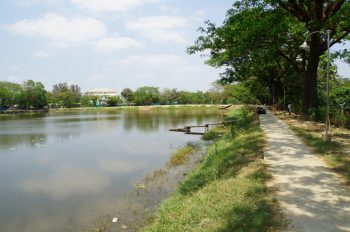
Preparations for the scoping of Yangon as Water Resilient City
As part of the scoping study the past months several activities have been undertaking to get a better understanding of the local water conditions in the Thaketa township. Several consultation sessions were held with the Yangon City and Regional Government and the Yangon City Development Committee to get a better understanding how the Thaketa township is governed and what the local challenges are to ensure efficient water management. In addition, several preparatory consultations took place with local stakeholders in the township.
Based on this initial analysis a field visit to Thaketa was planned. From 4-8 March 8 experts from different organisations of the consortium visited Yangon to get a feel for the issues and opportunities. Representatives from the Dutch Embassy in Yangon, Witteveen+Bos, Royal HaskoningDHV, U Minds, Doh Eain, Resilience and The Water Agency visited the township for two days and presented their initial observations afterwards.
The objective of the trip was to perform a urban water needs assessment of local stakeholders in Thaketa township. Aim was for the delegation to get a good understanding of the area, visit the township for township for observations (seeing, feeling) and consultations with citizens, business owners, local authorities, etc. to serve as input for the Resilient Yangon Scoping Study.
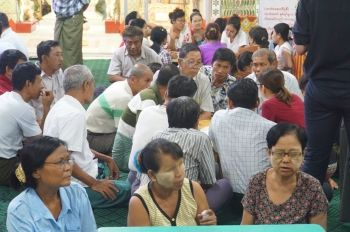
After initial introductions and prioritization the delegation had the first field day on March 5, visiting several wards in the township. With great support and guidance of the YCDC Thaketa team and the local Ward officers thee delegation visited several locations where water issues arise. In the afternoon the focus was on Ward 5, which is a ward that is isolated from the water pipeline network. It served as a great showcase for the experts to learn more on innovate ways of water supply. With support of Ward 5 Officers U Tin Htun Aung a public consultation session was organised, inviting local inhabitants to share about their struggles and experiences with water in the ward. On the second field day there was a specific focus on Ward 7, walking through the ward and meeting with several inhabitants.
Based on the field trip there are initial observations to share:
Variation in the how the water reaches the houses
The water supply in Thaketa is varied. Where ward 7 is well connected to the YCDC pipeline, ward 5 inhabitants are dependent on their own water supply. Our experts identified several ways of getting water to the homes; from the pipeline, the lake, the tubewell or through buying bottled water.
The struggle to keep the drainage clean
All over the wards small drainage canals exist that lead to main outlets in either the Bago river or the Panzundaung creek.
Our experts found that, despite a waste collection system in place, many of the drainage canals are blocked. Both Ward officers shared their struggles to keep the canals free, having to perform manual maintenance at least three times in the year. Especially before the start of the rainy season there is a high urgency to clean up, as clogged drainage will lead to flooding of the streets.
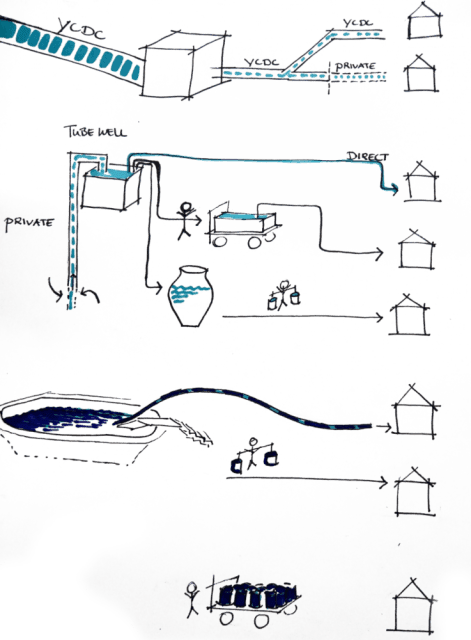
Image: Flore Bijker
What was remarkable was that through the conversations with inhabitants we learned that there are variations in what people consider as flooding. Streets of which we were certain they would flood, flooding issues were not mentioned by the people we spoke to. We learned that for some streets the flooding is taking place on such a regular basis, that people do not consider water in the street or water reaching their house as a flood. Only the water staying in the streets for longer than multiple hours would be named a flooding.
The observations and initial analysis of the Field Trip were shared to YCDC in a presentation on the final day of the Field Trip, also serving verification purposes. As we look back on a insightful field visit, the next step in the Urban Water program is to deliver the Scoping Study. Based on the observations, consultations and findings of this visit, a scoping of Yangon as a Water Resilient City will be prepared together with ambitions and tangible objectives. We look forward to continue the close cooperation with YCDCand the Ward Officers. In the summer’19 we expect to organise a workshop for all stakeholders to present and discuss the way forward.
For pictures of the field trip, please visit https://flic.kr/s/aHsmzh8Cax

